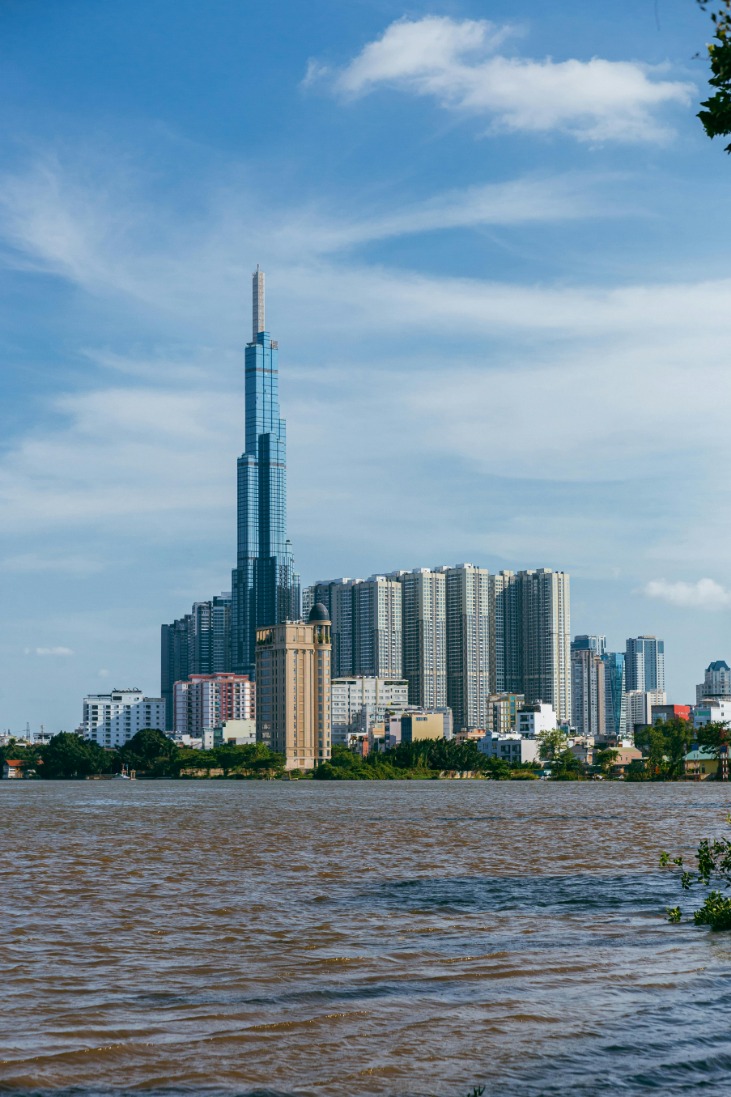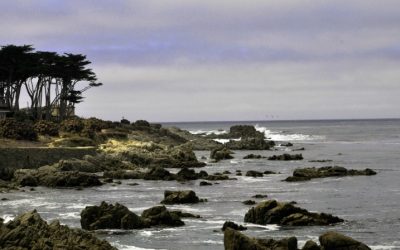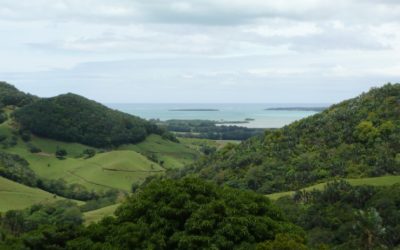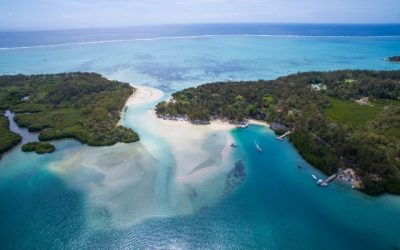Overview of Port Louis
Port Louis, the bustling capital city of Mauritius, is a vibrant hub of culture, commerce, and history. Located along the country’s northwest coast, it serves as the economic and administrative center, offering a mix of modern development and historical landmarks. With its diverse population and scenic waterfront, Port Louis is a captivating destination that showcases the rich heritage and dynamic spirit of Mauritius.
Historical Background
Port Louis is the vibrant capital city of Mauritius, serving as the economic, cultural, and political center of the island nation. Situated on the northwest coast, it offers a blend of historical charm and modern development.
Historically, Port Louis was established in 1735 by the French when they first settled in the region. It was named after King Louis XV. The city grew steadily during the French and subsequent British colonial periods, becoming a key port for trade and commerce. The city’s rich history is reflected in its colonial architecture, bustling markets, and diverse cultural influences, making it a significant hub for both historical exploration and contemporary life in Mauritius.
Geographical Location
Port Louis is the capital city of Mauritius, situated on the northwest coast of the island in the Indian Ocean. It serves as the political, economic, and cultural center of the country. Located along the shores of a natural harbor, Port Louis offers a strategic and picturesque geographical setting. The city is surrounded by mountains and lush landscapes, providing a scenic backdrop to its urban environment. Its position makes it an important hub for maritime trade and connectivity within the region.
Population and Demographics
Port Louis is the vibrant capital city of Mauritius, serving as the economic, political, and cultural center of the island nation. Situated along the northwest coast, it offers a mix of modern infrastructure and historic sites, reflecting its rich colonial history and diverse culture.
The city has a population of approximately 150,000 residents, but the metropolitan area extends to include a larger population of around 200,000 people. Port Louis is characterized by its diverse demographic makeup, with a blend of ethnic groups including Hindus, Muslims, Christians, and people of mixed heritage. The population is young, with a significant proportion of residents under the age of 40. This diversity is reflected in the city’s languages, cuisine, and cultural festivals, making Port Louis a dynamic and multicultural hub.
Economic Significance
The economic significance of Port Louis, the capital of Mauritius, cannot be overstated. As the country’s political, financial, and commercial hub, Port Louis plays a vital role in driving economic growth and development. Its strategic location, diverse industries, and vibrant port infrastructure contribute immensely to the nation’s economy, making it a key center for trade and investment in the region.
Financial Sector
The economic significance of the financial sector in the capital of Mauritius, Port Louis, is paramount to the country’s overall development. As the hub of banking, insurance, and other financial services, Port Louis attracts regional and international investments, fostering economic growth and stability. The robust financial sector provides essential funding for businesses, supports job creation, and enhances the country’s competitiveness in global markets. Additionally, Mauritius has positioned itself as an offshore financial center, offering a favorable regulatory environment and modern financial infrastructure that further amplifies its economic importance.
Trade and Commerce
The capital of Mauritius, Port Louis, plays a crucial role in the country’s economic significance, trade, and commerce. As a major port city, it serves as the central hub for maritime trade, facilitating the import and export of goods vital to the nation’s economy. Port Louis hosts key financial institutions, markets, and commercial activities that drive economic growth and development. The city’s strategic location and well-developed infrastructure enhance its importance as a gateway for international trade, attracting foreign investment and boosting commerce. Overall, Port Louis stands as the economic heart of Mauritius, underpinning the country’s trade activities and contributing significantly to its economic stability and prosperity.
Tourism Industry
The capital of Mauritius, Port Louis, plays a vital role in the country’s tourism industry, contributing significantly to its economic development. As the political and economic hub, Port Louis attracts numerous visitors with its rich history, cultural diversity, and vibrant markets. The city’s infrastructure supports a thriving tourism sector, which in turn generates employment and stimulates local businesses.
- Port Louis serves as a gateway for international tourists arriving in Mauritius, boosting airline and hospitality industries.
- The city hosts diverse attractions such as the Central Market, Caudan Waterfront, and historical sites, encouraging cultural tourism.
- The tourism industry in Port Louis contributes substantially to the national economy through spending on accommodation, dining, and entertainment.
- Development of tourism-related infrastructure in Port Louis has led to increased foreign investment and improvements in urban facilities.
- Events and festivals held in Port Louis attract visitors year-round, enhancing its reputation as a major tourist destination.
Cultural and Social Aspects
The capital of Mauritius, Port Louis, is a vibrant city rich in cultural and social diversity. Its unique history influences the way people communicate, celebrate traditions, and interact daily. Understanding the cultural and social aspects of Port Louis offers valuable insights into the island’s identity and the diverse communities that shape its dynamic society.

Languages Spoken
The capital of Mauritius, Port Louis, is a vibrant city that reflects a rich tapestry of cultural and social influences, making it a fascinating place to explore. The diverse population contributes to a unique cultural landscape, blending traditions from various ethnic groups and communities.
- The primary language spoken in Port Louis is Mauritian Creole, which serves as a lingua franca for most residents.
- English is used officially in government and legal documents, and is also commonly spoken, especially in business and tourism sectors.
- French is widely spoken as well, and many residents are bilingual or multilingual, often switching between English, French, and Creole in daily conversations.
- Other languages, such as Hindi, Urdu, Tamil, and Mandarin, can also be heard within specific communities, reflecting the multicultural makeup of the city.
Religious Influences
The capital of Mauritius, Port Louis, reflects a rich tapestry of cultural and social influences that shape its identity. It is a melting pot of diverse communities, including Indo-Mauritians, Creoles, Sino-Mauritians, and Europeans, each contributing unique traditions and customs to the city’s social fabric. This diversity is evident in the city’s vibrant festivals, culinary scene, and everyday interactions, fostering a multicultural environment.
Religious influences play a significant role in the cultural landscape of Port Louis. The city is home to various religious communities practicing Hinduism, Christianity, Islam, and Buddhism, among others. Temples, mosques, churches, and pagodas coexist within the city, often located near each other, symbolizing religious harmony. Celebrations like Diwali, Christmas, Eid, and Chinese New Year are widely observed and entail lively festivities that reflect the spiritual diversity of the city.
Cultural Festivals and Events
The capital of Mauritius, Port Louis, serves as a vibrant hub showcasing the rich cultural and social fabric of the island. It reflects a blend of diverse traditions, ethnicities, and religions that have come together over centuries to shape its unique identity. The city is a lively center for cultural festivals and events that celebrate this diversity, fostering community spirit and preserving age-old customs.
Throughout the year, Port Louis hosts various festivals such as Chinese New Year, Diwali, and Hindu festivals, which are marked with colorful processions, traditional music, dance, and culinary delights. These events offer locals and visitors alike an immersive experience into the island’s multicultural heritage. Additionally, street fairs, craft markets, and music festivals regularly animate the city, showcasing local arts, crafts, and performers.
Cultural festivals in Port Louis not only highlight the island’s history but also promote social cohesion and mutual appreciation among its citizens. They serve as opportunities for storytelling, education, and the reinforcement of cultural identity, making the city a dynamic showcase of Mauritius’s diverse cultural landscape.
Major Landmarks and Attractions
The capital of Mauritius, Port Louis, is a vibrant city rich in history and culture, offering a variety of major landmarks and attractions for visitors to explore. From historic sites to bustling markets, the city provides a unique blend of tradition and modernity that captures the essence of this island nation’s capital.
Le Caudan Waterfront
Le Caudan Waterfront is one of the major landmarks and attractions in Port Louis, the capital of Mauritius. It is a vibrant commercial and entertainment complex that offers visitors a unique blend of shopping, dining, and cultural experiences. Situated along the waterfront, it provides stunning views of the harbor and the Indian Ocean, making it a popular destination for both locals and tourists.
- Luxury Shops: Featuring international and local brands, perfect for shopping enthusiasts.
- Restaurants and Cafes: Offering diverse cuisines with scenic views of the water.
- Casino: A lively spot for entertainment and gaming enthusiasts.
- Historical Sites: Including the Blue Penny Museum, showcasing Mauritius’ rich history and philately.
- Art Galleries: Displaying local Mauritian art and crafts.
- Entertainment Venues: Regular events and live performances that showcase local culture.
Aapravasi Ghat
The capital of Mauritius, Port Louis, is home to several major landmarks and attractions that highlight the island’s rich history and vibrant culture. Aapravasi Ghat, a UNESCO World Heritage Site, is one of the most significant landmarks in the city. It served as the important immigration depot where indentured laborers from India arrived in the 19th and early 20th centuries. Visitors to Aapravasi Ghat can explore the historic remnants of the immigration process and learn about the contributions of Indian laborers to the development of Mauritius. Other notable attractions in Port Louis include the bustling Central Market, the Caudan Waterfront shopping complex, and the natural beauty of nearby Le Pouce mountain. These sites together offer a fascinating glimpse into the diverse heritage and lively atmosphere of the capital city.
Citadel Fort Adelaide
The capital of Mauritius, Port Louis, is home to many major landmarks and attractions, with the Citadel Fort Adelaide standing out as a prominent historical site. This fortress, also known as La Citadelle, offers panoramic views of the city and the surrounding ocean, making it a must-visit location for tourists. Built in the early 19th century by the French and later expanded by the British, Fort Adelaide played a crucial role in the island’s colonial history. Visitors can explore its well-preserved ramparts, artillery, and commanding towers while learning about the strategic importance of the site. The fortress not only provides insight into Mauritius’ military past but also offers a scenic lookout point that captures the essence of Port Louis. Close by, visitors can enjoy the vibrant atmosphere of the city, including colorful markets, bustling streets, and cultural sites, making Fort Adelaide a key attraction in the capital.
Infrastructure and Development
The capital of Mauritius, Port Louis, is a vibrant hub of infrastructure and development that reflects the nation’s progress. As the economic and administrative center, it boasts modern roads, ports, and telecommunications facilities that support both local and international activities. Continuous development efforts have transformed Port Louis into a dynamic city capable of fostering growth and connectivity across the island.
Transportation Systems
The capital of Mauritius, Port Louis, serves as the central hub for the island’s infrastructure and development. It boasts a well-developed transportation system that includes an extensive road network, bus services, and a modern port facilitating international trade. The city’s infrastructure supports both economic growth and daily commuting, with ongoing projects aimed at enhancing connectivity and urban facilities. Additionally, efforts are underway to modernize public transportation and improve logistical efficiency, reflecting the nation’s commitment to sustainable development and improved accessibility in Port Louis.
Urban Planning and Growth
The capital of Mauritius, Port Louis, serves as the economic and administrative hub of the island, playing a pivotal role in the country’s infrastructure and urban development. Over the years, significant investments have been made to modernize the city’s transportation networks, including the expansion of roads, ports, and the airport, to facilitate trade and tourism. Urban planning initiatives aim to balance growth with sustainability, ensuring that the city accommodates a growing population while maintaining environmental integrity. Development projects focus on upgrading public facilities, creating green spaces, and improving housing to support urban residents. As Port Louis continues to expand, strategic planning is essential to foster sustainable growth and enhance the quality of life for its inhabitants. The city’s development reflects a commitment to modernizing infrastructure while respecting cultural heritage and promoting economic progress.
Educational and Institutional Facilities
The capital of Mauritius, Port Louis, is a vibrant hub that hosts a variety of educational and institutional facilities essential for the country’s development. These facilities include universities, schools, government offices, and cultural institutions that contribute to the nation’s growth and societal progress. Understanding the role of these institutions in Port Louis offers insights into the educational landscape and institutional infrastructure of Mauritius.
Universities and Colleges
The capital of Mauritius, Port Louis, is not only the economic and administrative hub of the country but also a center for educational and institutional facilities. The city hosts numerous universities and colleges that offer a wide range of academic programs to both local and international students. These institutions provide high-quality education in fields such as business, technology, science, and the arts, contributing significantly to the development of the nation’s human resources.
Among the prominent universities is the University of Mauritius, which offers undergraduate, postgraduate, and research opportunities across various disciplines. Additionally, there are several technical colleges and vocational institutes aimed at skill development and specialized training, supporting the growing demands of the Mauritian economy. These facilities play a crucial role in fostering innovation, research, and lifelong learning within the country.
Government Offices and Agencies
The capital of Mauritius, Port Louis, serves as the political and administrative hub of the country, hosting numerous educational and institutional facilities. The city is home to various government offices and agencies that manage national affairs, governance, and development projects. Educational institutions such as the University of Mauritius and several colleges and schools are located in Port Louis, promoting higher education and skill development. Additionally, government ministries, departments, and public service agencies are strategically situated within the city to facilitate effective administration and public service delivery. These facilities play a crucial role in maintaining the country’s governance, fostering educational growth, and supporting the overall development of Mauritius.
Environmental and Urban Challenges
The capital of Mauritius, Port Louis, faces a range of environmental and urban challenges as the city continues to grow rapidly. Urbanization pressures threaten green spaces and strain infrastructure, while pollution and waste management issues impact the quality of life. Addressing these challenges is essential to ensure a sustainable and livable environment for residents and future generations.
Pollution and Waste Management
The capital of Mauritius, Port Louis, faces significant environmental and urban challenges that impact its sustainability and quality of life. Rapid urbanization has led to increased pollution and waste generation, putting stress on the city’s infrastructure and natural resources. Pollution from vehicular emissions, industrial activities, and street vendors contributes to air and water quality deterioration, affecting residents’ health. Waste management remains a critical concern, with inadequate waste disposal systems leading to illegal dumping and pollution of land and waterways. Addressing these issues requires comprehensive strategies focusing on sustainable urban planning, promoting recycling, and reducing emissions. Efforts to enhance green spaces and improve waste management infrastructure are essential for creating a cleaner, healthier environment for Port Louis and its inhabitants.
Urban Expansion and Sustainability
Port Louis, the capital of Mauritius, faces numerous environmental and urban challenges as the city continues to grow rapidly. Urban expansion has led to increased pressure on green spaces, water resources, and waste management systems, posing sustainability concerns. Balancing modernization with environmental preservation is essential to ensure a healthy living environment for residents. Efforts to develop sustainable urban planning strategies, such as promoting public transportation and green infrastructure, are crucial in addressing these challenges. These measures can help mitigate pollution, reduce carbon emissions, and preserve the natural beauty that makes Port Louis a vibrant and attractive capital.





0 Comments